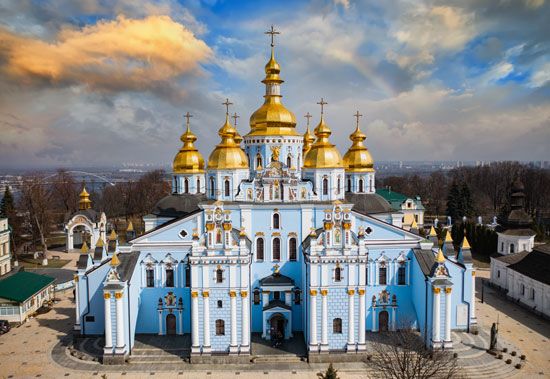Alex
Kingdom of Greece
- Apr 16, 2019
- 5,033

In the early light of a bitter Mariupol morning, as frost still clung to the factory's corrugated metal walls, a small band of anarchists gathered at the massive gates of the Azovstal Iron and Steel Works—a sprawling complex of cylinders, cranes, railways, chimneys, and old brown buildings.
At precisely 6:30AM, as the sun began to pierce the winter gloom, the group, led by an older man named Serhiy, surged through the gates. Clutched in their hands were makeshift weapons fashioned from the tools of their labour and around their necks hung crucifixes—symbols of love that the church and state had long perverted.
"Brothers and sisters," their leader spoke, "remember that our Lord did not come to this earth to be a king, but rather to overthrow the tyrants. Let us follow the first Christians! Let us rid ourselves of tyrants! Let us rule ourselves! No more masters! No more chains!"
They stormed through the gates, forcing open heavy steel doors. The factory's corridors soon rang out with resounding cries. On the walls—both exterior and internal—were scrawled with words like "Christ and Freedom for All!" and "No Masters, No Chains!" From the roofs and windows hung a black flag with a white orthodox cross within a blood-red crown of thorns.
Within hours, armoured vehicles and riot police swarmed the perimeter of the factory. It was expected, this place was owned by oligarch billionaires, after all, and their money was being threatened.
They had expected an easy victory. Instead, they were met with the unyielding spirit of people who were willing to die for their ideals. As the police advanced, the workers formed makeshift barricades. In the din of clashing metal and shouting voices, Serhiy's voice rose one more: "Let us show these devils that the Kingdom of God will be usurped no longer!"
The battle was fierce. Tear gas and smoke filled the air, and the metallic clang of improvised shields and tools became a constant echo within Azovstal. The police, overwhelmed, found themselves retreating as each failed attempt to break thorugh only further fueled the crowd.
News of the occupation spread like wildfire. In factories, workshops, schools, and neighborhoods across Ukraine people began to seize control. In Kharkiv, Kyiv, and even the smallest of villages, anarchists and socialists and communists took to every street.
They named it the Black Revolution, refering to the black flag of the Azovstal revolutionaries.
Countering the revolution, far-right nationalists also took to the streets, clashing with people in Kharkiv, Kyiv, Donetsk, and Odesa.




